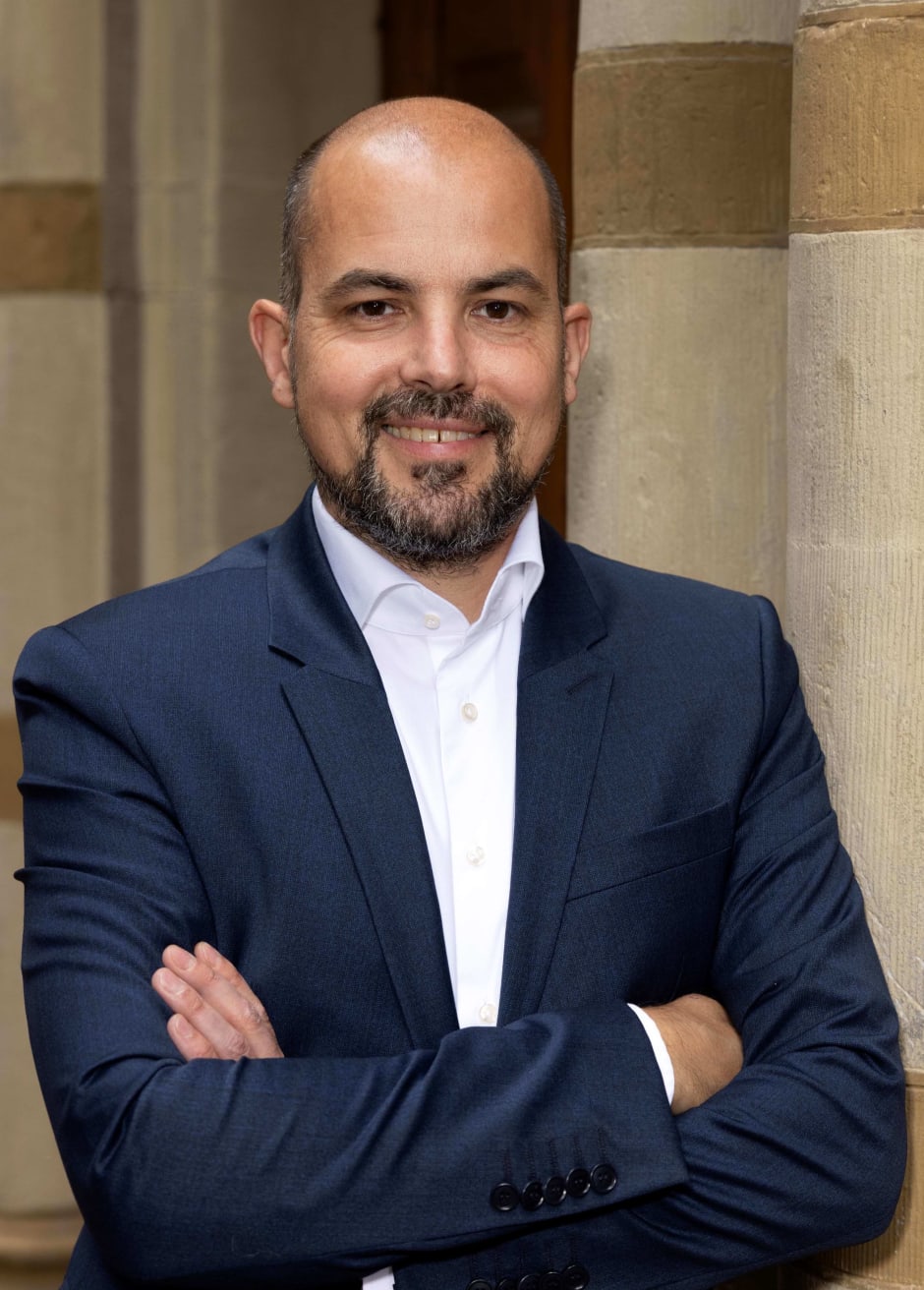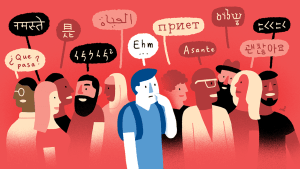
For Humanities the new internationalisation law will be disastrous
With the tightening of the Internationalisation Act, almost all English-language bachelor’s in the Randstad are at risk. The Faculty of Humanities sees a dark future for the faculty. “Limiting international students is disastrous.”
“The scenario the education minister is outlining is really the biggest doomsday scenario you can think of,” responds Carlos Reijnen, education director of the College of Humanities, to the letter education minister Eppo Bruins sent to parliament last week about making Dutch become the norm in higher education again. “This has major implications for all universities in the Netherlands. For a faculty like the humanities, this puts the entire bachelor’s programme in trouble.”
Tightened
In that letter, Minister Bruins reveals for the first time how he intends to proceed with the implementation of the Internationalisation Act (WIB) introduced earlier this year by his predecessor Robbert Dijkgraaf. Bruins wants to reduce the number of foreign students, and to that end he wants to tighten the criteria that foreign-language education must meet. Dutch should again become the norm in higher education.

This makes the situation for the UvA look a lot bleaker than it did a few weeks ago. Back then, many faculties were still optimistic that many English-language bachelor’s at the UvA would pass the Toets Anderstalig Onderwijs (TAO), a deficiency audit that decides whether a programme should be allowed to teach in a language other than Dutch. That test uses four criteria on the basis of which a non-English-speaking bachelor’s programme could get an exemption. The UvA may not have been able to invoke the first two criteria: regional circumstances and the labour market – after all, the university is not located in a border area or region with population decline and most bachelor’s do not educate students for a labour shortage as is the case at technical universities – but the last two criteria, uniqueness (the programme is unique in the Netherlands) and international positioning, could certainly be invoked. Last week, it became clear that the minister wants to tighten precisely those last two criteria, to prevent too many English-language bachelor’s from continuing to exist.
Untenable
This tightening concerns almost the entire UvA; even English-language programmes such as Amsterdam University College (AUC) and Politics, Psychology, Law and Economics (PPLE) are no longer guaranteed a free pass under this tightening. The consequences are also severe for faculties such as Economics and Business Administration (FEB), Social & Behavioural Sciences (FMG) and Humanities (FGw), where a significant part of the bachelor’s are bilingual. The situation is particularly dire at humanities because of the large number of small-scale studies: if a large part of the student population there is eliminated, it is the question how profitable such a program still is.
“We are quickly talking about 30 per cent of the number of students we might lose with these measures,” tells Reijnen about the Humanities Faculty. “That’s a huge cut that we cannot just replenish with Dutch students because that number is gradually decreasing for demographic reasons. So we are facing a big challenge where disciplines may be lost.”
Leiden’s humanities faculty is in dire straits, writes university newspaper Mare after getting a hand on the faculty board’s plans. The faculty has to make major cuts, and it seems likely that this will include scrapping bachelor’s such as African Studies and Latin American Studies. Other bachelor’s will have to merge: Chinese, Japanese, Korean and South and Southeast Asian Studies will merge to form the new Asia Studies bachelor’s. French, German and Italian are to merge into the bachelor of European Languages and Cultures. Humanities has to make substantial cuts because of a declining number of PhDs, students taking fewer credits and rising wage costs. This does not even include the announced cuts yet. How exactly the cuts will work out is not clear, but the faculty board says that reorganisation is “definitely a realistic scenario”.
This mainly concerns the smaller studies such as Linguistics and Literary & Cultural Analysis, archaeology and antiquities. Reijnen: “Quite apart from the issue of whether education will remain financially sustainable, it immediately means a huge impoverishment of education.”
It is not only the bachelor’s within humanities that are at risk, but also the disciplines, warns Reijnen. “If you have fewer and fewer students, you also need fewer lecturers for teaching. While those lecturers often also do research. Staff in the programmes are worried about their jobs.”
Government intervenes on substantive choices
“Not to mention the substantive arguments,” Reijnen continues. “The policy is purely aimed at reducing the number of international students but this way it inevitably leads to a loss of quality in education and research. A discipline like archaeology needs international exchange, otherwise you don’t compete on the world stage. Look at Denmark, where cutting back on international students led to reputational damage and the closure of disciplines. And to England, where the Brexit and tuition fee hikes reduced the number of international students and impoverished education. Both financially and substantively, limiting international students is disastrous.”
According to Reijnen, this is the first time in a long time that the government is intervening on the content choices in higher education. “As faculty, we too support limiting the intake of international students as required by law. But in its implementation lies the problem. We would like to cooperate in limiting growth at the larger programmes. But internationalisation is particularly crucial for the smaller study programmes. Now the pain ends up at specific programmes.”
“A letter is not yet a law, so we are not there yet,” Reijnen puts into perspective. First, the WIB still has to go through the House of Representatives and the Senate. “But with this letter, the cat has been thrown among the pigeons. Higher education is now in the penalty box and it is time to turn public opinion around: academics and also employers looking for students whose studies are now in jeopardy must speak up. The survival of our disciplines is at stake.”


